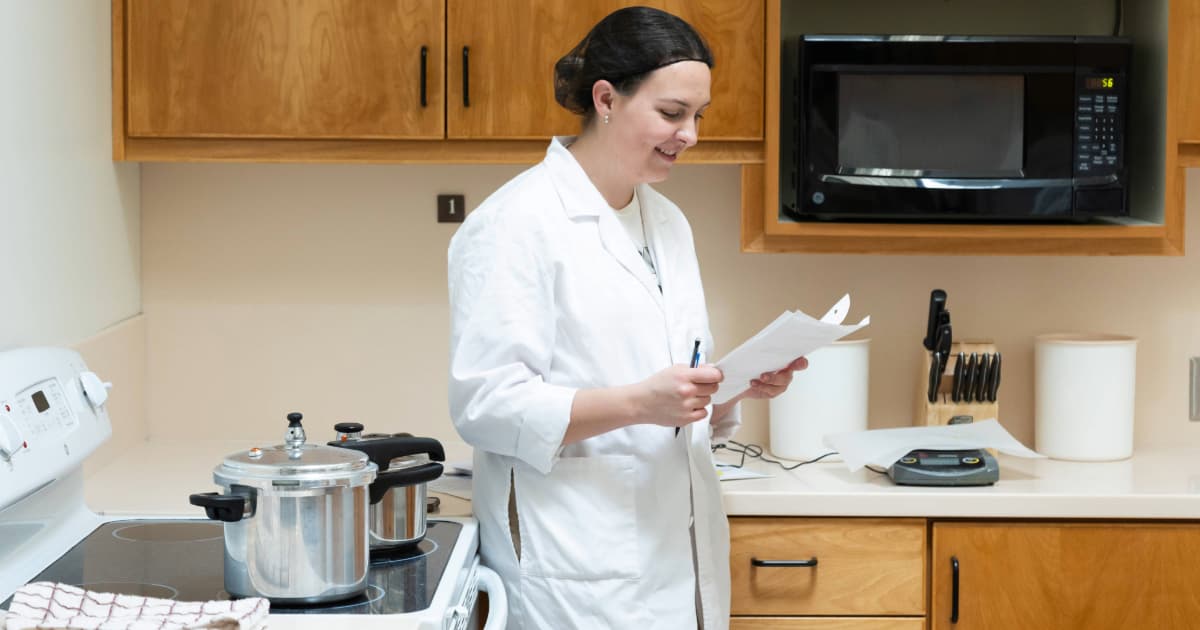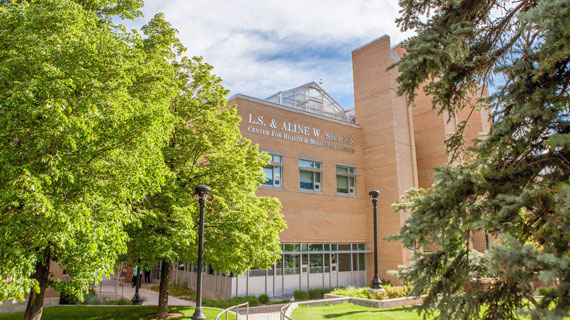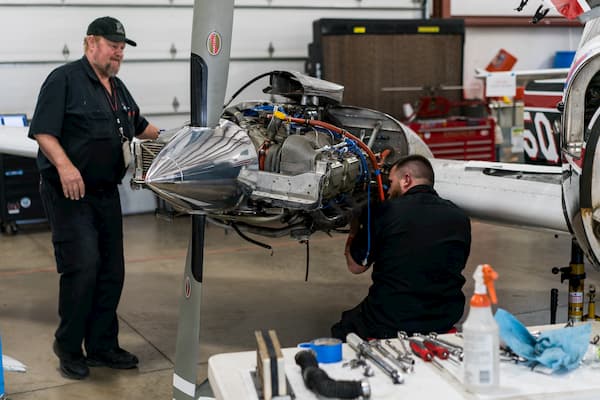What Can You Do With a Nutrition Degree?
Posted: May 23, 2024 | Author: Wanting Qiao | Read Time: 4 minutes
 As you navigate your academic journey, you may be exploring various fields of study, trying to find the perfect fit for your interests and career aspirations. One area that's gaining increasing attention and relevance is nutrition. The career outlook for individuals with a degree in nutrition is promising, with an anticipated employment growth of 12.4% in Utah through 2028. The median average annual salary in Utah for Dietitians is $68,000, and for nutritionists is $45,000.
As you navigate your academic journey, you may be exploring various fields of study, trying to find the perfect fit for your interests and career aspirations. One area that's gaining increasing attention and relevance is nutrition. The career outlook for individuals with a degree in nutrition is promising, with an anticipated employment growth of 12.4% in Utah through 2028. The median average annual salary in Utah for Dietitians is $68,000, and for nutritionists is $45,000.
However, the urgency for more nutrition experts goes beyond these statistics. As we grapple with a mounting health crisis marked by preventable diseases like hypertension, cardiovascular issues and diabetes, the need for knowledgeable professionals to deliver essential nutrition care and education has never been more pressing. Earning a Bachelor's degree in Nutrition or minoring in Nutrition can serve as a significant stepping stone toward pursuing a career in various health fields such as medicine, pharmacy, dentistry, physical therapy or becoming a physician assistant. A strong foundation in nutrition provides a comprehensive understanding of the intricate relationship between diet, health, and disease prevention. This knowledge is invaluable for healthcare professionals as they work with patients to improve overall health outcomes. Understanding nutrition can enhance diagnostic skills, treatment planning and patient education.
Here are some popular job options for a nutrition major, whether you’re pursuing a bachelor’s or a master’s degree.
Jobs You Can Get With a Degree in Nutrition
Registered Dietitian Nutritionists (RDNs)
RDNs are experts in food and nutrition, holding at least a graduate degree from an accredited dietetics program. They undergo supervised practice, pass a national exam and continually develop their skills. RDNs can specialize in areas like gerontological nutrition (CSG), sports dietetics (CSSD), pediatric nutrition (CSP), renal nutrition (CSR) and oncology nutrition (CSO).
Medical Sales Representative
Medical sales representatives sell medicines and medical equipment to doctors, pharmacists and nurses. They focus on a specific area and meet sales targets. Sometimes they work in a team or independently and receive benefits like a company car and private health insurance.
Health Educator
Health educators organize programs to teach people about staying healthy. They make guides and plan activities for different groups. They also gather information to show how well their programs work and share it with those who support them.
Dietetic Technicians Registered (DTRs)
DTRs can perform tasks similar to Registered Dietitians (RDs) or Registered Dietitian Nutritionists (RDNs), such as collecting medical information, providing nutrition advice and teaching community classes. However, DTRs usually work under the direct supervision of an RD or RDN. To become a DTR, you need at least an associate’s degree and completion of an ACEND-accredited dietetic technician program with supervised practice hours.
Licensed Nutritionist & Non-Licensed Nutritionist
Licensed Nutritionists, including Registered Dietitians (RDs), assess dietary needs, provide counseling and develop meal plans. They can work in hospitals and clinical settings, depending on state regulations. Non-licensed nutritionists typically work in non-medical settings like health food stores and community centers, offering similar services as licensed nutritionists if allowed by state laws.
Food Scientist
Food scientists develop processed food and drinks using microbiology and chemistry. They research adding nutrition to foods and test them for safety. Food scientists also check existing products to ensure they meet nutritional standards and regulations.
Food Technologist
Food technologists improve food quality by conducting studies and tests, overseeing the entire food development process and researching ways to enhance nutrition. They also ensure ingredients meet regulatory standards.
Food Safety Auditor
Food safety auditors check food businesses for safety, including grocery stores and restaurants. They also review nutrition programs in schools and other institutions to ensure they meet federal guidelines. These auditors usually work for government agencies like the USDA.
Food Service Associate
Food service associates work in places like cafeterias and restaurants, keeping track of food supplies, serving customers and sometimes operating cash registers. They also help with meal preparation, dishwashing and other tasks as needed.
Nutrition Aide
Nutrition aides make sure patients get the right food, fulfill dietary requests in healthcare settings and help prepare meals and serve food according to patients' needs. They also follow safety rules and report any issues while providing caring support to patients.
Health Coach
A health coach can also be a Registered Dietitian Nutritionist. They help clients with nutrition, exercise and lifestyle changes to reach their goals providing advice through one-on-one sessions and group coaching. Some work in healthcare settings alongside medical staff. Health coaches juggle multiple clients and keep them motivated to stick to their health plans.
SUU Master of Science/Didactic Program in Dietetics (MS/DPD)
Southern Utah University is the first university in Utah to offer the 4+1 graduate Dietetics program, which enables students to earn 2 degrees, a bachelor's degree and a master's degree in 5 years. This intensive program is for top-performing undergraduates aiming to become Registered Dietitian Nutritionists (RDNs). It's a Didactic Program in Dietetics (DPD), covering essential topics like nutrition, food science, medical therapy and more. It's designed to meet the knowledge needs for dietetics practice.
Overall, whether you're just starting your academic journey or considering a career change, a degree in Nutrition can open doors to a wide range of opportunities in the healthcare field. Whether you aspire to become a registered dietitian, work in medical sales or pursue a career in food science, a background in nutrition equips you with the expertise needed to thrive in various healthcare professions.
Learn more about SUU’s Dietetics Program.




